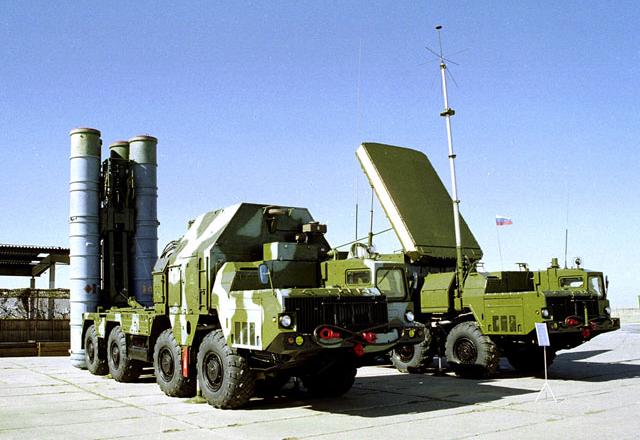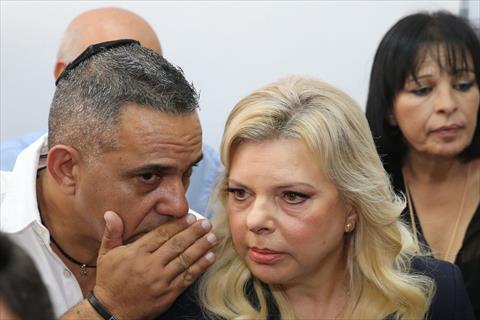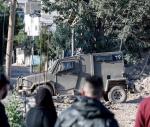You are here
‘Russian-supplied S-300 air shield in Syria can be beaten’
By Reuters - Oct 04,2018 - Last updated at Oct 04,2018
OCCUPIED JERUSALEM — An Israeli official played down on Wednesday the Russian upgrading of Syria's air defences, saying the newly supplied S-300 missile system could be defeated by Israel's stealth fighters and possibly destroyed on the ground.
Moscow said on Tuesday that it had delivered the S-300, a decision it took after accusing Israel of indirect responsibility for the downing of a Russian spy plane by Syrian forces as they fired on attacking Israeli jets last month.
Damascus and its big-power backer describe the advanced addition to Syria's arsenal as a major deterrent. Israel and Washington have both voiced misgivings about the S-300 handover.
But asked in an interview if the Syrian acquisition of the S-300 would clip the Israeli military's wings, Tzachi Hanegbi, the country's regional cooperation minister and a non-voting member of its security cabinet, said: "Unequivocally, no."
"The operational abilities of the air force are such that those (S-300) batteries really do not constrain the air force's abilities to act," he told Israel's Army Radio.
Referring to F-35 Joint Strike Fighters that Israel began receiving from the United States over a year ago, Hanegbi said: "You know that we have stealth fighters, the best planes in the world. These batteries are not even able to detect them."
Reuters reported in 2015 that Israel had trained against a Russian-supplied S-300 system in Greece.
Israel says its air raids on Syria are needed to foil deployments and arms transfers by Iran or Lebanon's Hizbollah guerrillas, allies of Damascus.
Hanegbi said that Russia had previously stationed its own S-300 in Syria, so the system's capabilities had long been factored into Israeli planning. Syria's military would require "a few months" to get its S-300 operational, he said.
“We have claified to the Syrians more than once that we will not step back from our commitment to prevent Iran’s entrenchment in Syria,” Hanegbi said, adding a veiled threat to take action against the S-300 on the ground: “We were already forced, a few months ago, to destroy Syrian missile batteries, and I hope they won’t challenge us in the future.”
Israel said on September 4 it had carried out more than 200 air strikes in Syria in the previous two years — an average rate of twice a week — with Russia largely turning a blind eye. There have been no reports of such missions since the Russian plane’s downing on Sept. 17, however.
Any such hiatus was a “tactical situation over a week or two” rather than a strategic reassessment by Israel, Hanegbi said.
Asked if Iran and its allies had used the period to step up their activities in Syria, he said he had seen “no basis for that” in Israeli intelligence assessments.
Related Articles
DAMASCUS — A top Syrian official has said a new air defence system from ally Russia will force Israel to "think carefully" before carrying o
Russia's decision to supply Iran with the S-300 missile air defence system was seen by critics in Israel and the United States as proof this month's framework nuclear agreement was already making Tehran more of a threat.
OCCUPIED Jerusalem — Israeli Prime Minister Benjamin Netanyahu said on Sunday he would meet Russian President Vladimir Putin to discuss coor




















